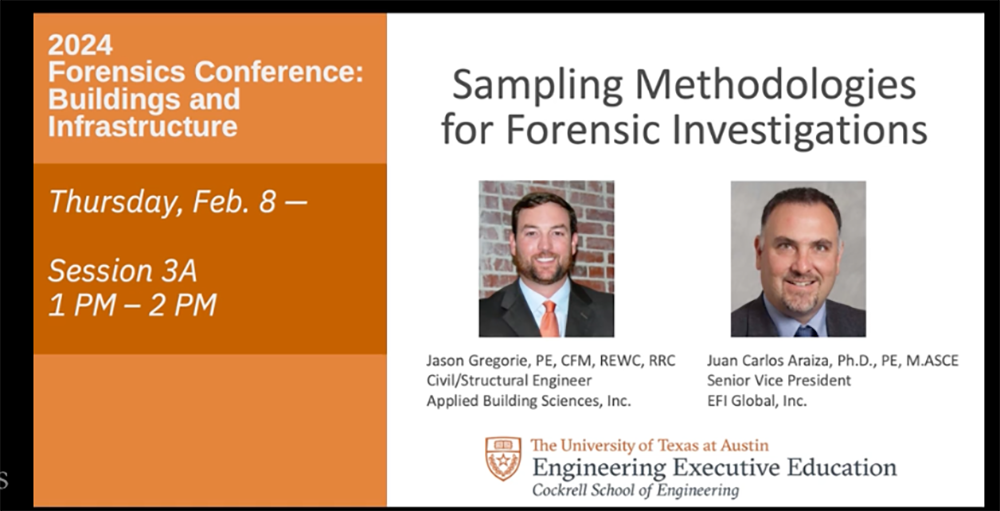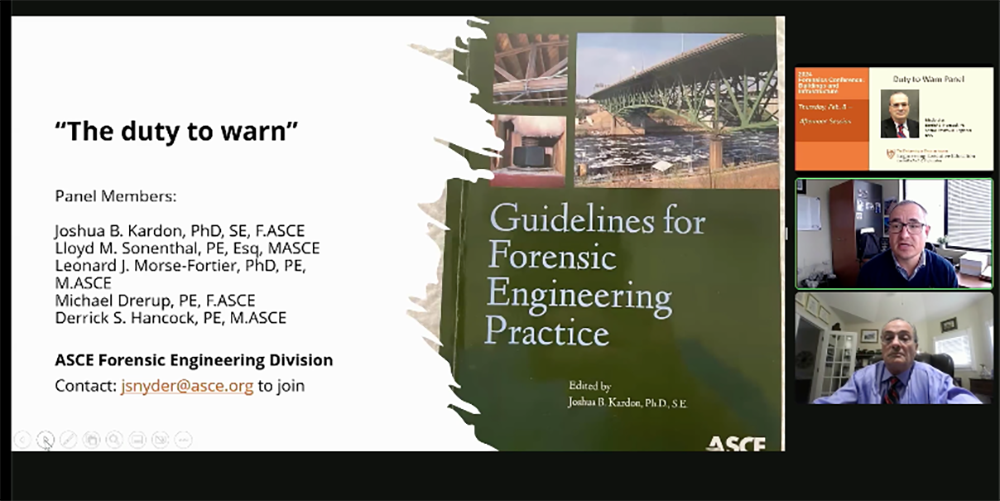UT Forensics Conference Tackles Structural and Ethical Challenges
For almost 20 years, the annual Cockrell School Forensics Engineering Conference has convened forensics engineering experts from companies and academia to tackle real-world case studies from all angles – structural, ethical and financial.

Led by Cockrell School Distinguished Teaching Professor David Fowler and produced and organized by Texas Engineering Executive Education (TxEEE), the February 2024 conference brought together 139 participants in an online setting for a robust, two-day agenda.
Following are some highlights from this year’s conference.
Lucas Pachal of Nederveld, Inc. said, “The presenters were very knowledgeable and clearly expressed their content, while the conference was put together in a very efficient manner.”
“The presentations were first rate, very informative and interesting,” said Terry Taylor of Haag Global, Inc.
The conference agenda included technical talks about equipment and practices, ethical topics related to when and how to warn of potential failures, and social issues that must be considered when addressing forensics engineering challenges.
“The Texas Engineering Executive Education Program is an excellent tool for me to continue the educational requirements of an Engineering License holder in the State of Texas. I have never been disappointed in the presentations presented in the Forensics Engineering Conference and look forward to a continuing relationship with both staff personnel and presenters,” said Robert Gentry, Self-Employed.

Engineering students, such as Thomas Varner, a graduate research assistant, attended the conference. “The conference was valuable in its application of Forensic Engineering to real-world problems, especially recent instances of structural collapse and failure. It helped me see the ‘light at the end of the tunnel’ and apply the theory to reality,” he said.
The tentative dates for next year’s conference are Feb. 6-7, 2025.





